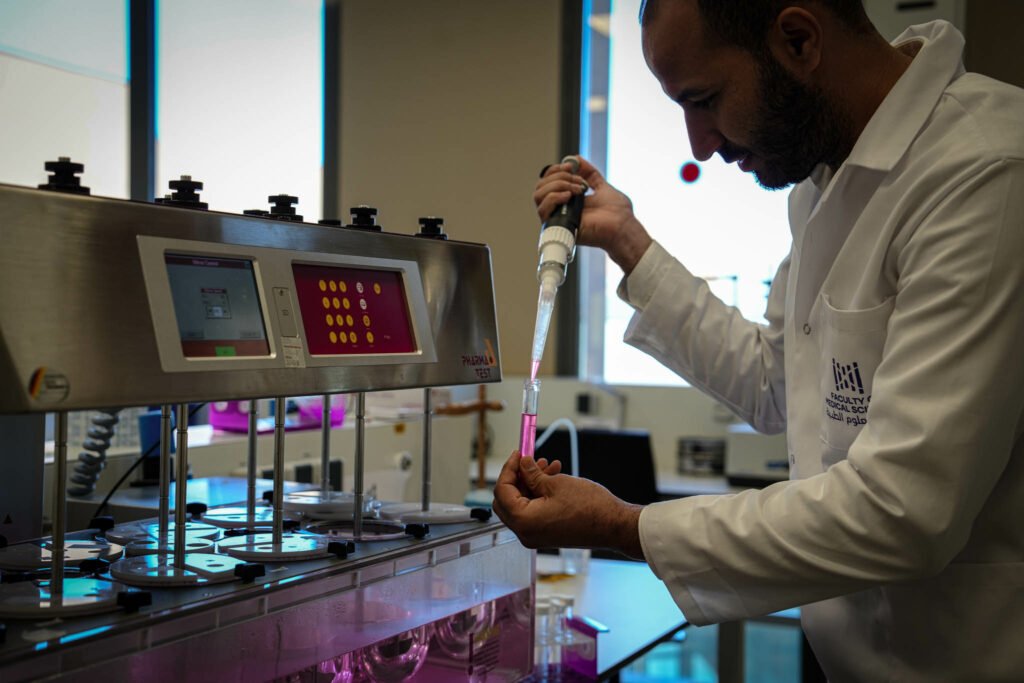BIOMATERIALS FOR MEDICAL APPLICATIONS

The main scientific goal of the Biomaterials Research Team (BRT) is the development of original biomaterials for the repair and regeneration of hard and soft tissues. The team focuses on enhancing pre-established approaches and creating new ones to design and synthesize complex hierarchical biomaterials. By studying the structure/property relationship, the team can carefully tune the properties of the biomaterials to meet the physicochemical, biological and mechanical requirements associated with the targeted function or defect site. The research activities of the Biomaterials Research Team are diverse and focus on a wide range of biomaterials. Phosphate-based biomaterials The team is actively conducting research on phosphate-based biomaterials, such as calcium phosphate for the regeneration of bone losses originated from traumatic or pathological issues, such as infections, osteoporosis, cancer, etc.
Within the framework of this research line, a special focus is directed on the valorization of natural phosphate compounds for the development of new bone-filling materials. This approach requires extensive follow-up studies to characterize the physicochemical properties and investigate the surface reactivity of calcium phosphates, particularly the hydroxyapatite and biomimetic nanocrystalline apatite. These calcium phosphate-based biomaterials could be combined with biopolymers in order to confer new biological and mechanical functionalities allowing the conception of injectable biocompatible cements adequate for minimally invasive surgeries. The team is also investigating the interfacial properties of calcium phosphate compounds upon contact with biological environments. The optimization of the uptake & release processes is crucial for the association of desired therapeutic agents and the design of biocomposites as local drug delivery systems (DDS) for the treatment of bone pathologies. Multifunctional Bioactive Glasses Bioactive glasses constitute a significant category of biomaterials known for their biocompatibility and degradability. Within this research domain, our team is currently engaged in synthesizing novel formulations of bioactive glasses tailored for the regeneration of both soft and hard tissues. We are exploring diverse synthesis methods to produce both bulk and mesoporous nanoparticles. Additionally, our research endeavors involve doping these glasses with therapeutic ions as well as their association with bioactive and specific substances-groups to enhance their biological activities. This approach allows us to induce some new properties and create multifunctional biomaterials capable of delivering various therapeutic effects, such as antimicrobial, antioxidant, and osteogenic properties, simultaneously. Furthermore, our team is actively involved in shaping these bioactive glasses into functional scaffolds, thereby expanding their potential applications in tissue engineering and regenerative medicine. Biomaterials for cartilage repair Our team is also focused on designing advanced hydrogels primarily composed of biopolymers, offering promising treatment avenues for patients with osteoarthritis. Our current research interests center on developing smart injectable hydrogels that undergo gelation in response to subtle changes in the external environment, including pH, temperature, light, and enzymes. These hydrogels, administered via minimally invasive injections, offer the advantage of forming in-situ, adapting to any desired shape, and effectively addressing irregular cartilage defects with minimal complications.


